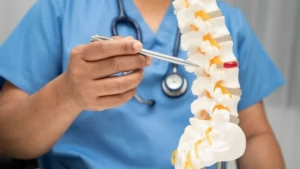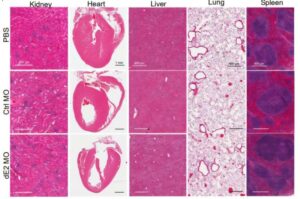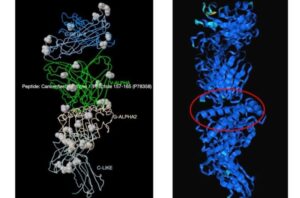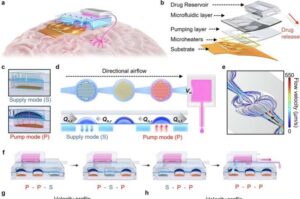
FDA clears Microbot’s LIBERTY endovascular robot
The FDA’s clearance of LIBERTY follows the completion of Microbot’s pivotal trial in April 2025, achieving a 100% success rate in robotic navigation.

The FDA’s clearance of LIBERTY follows the completion of Microbot’s pivotal trial in April 2025, achieving a 100% success rate in robotic navigation.

ARC‑EX is the first system to receive a CE Mark in Europe specifically for improving hand and arm strength and sensation in adults with chronic, incomplete spinal cord injury.

Researchers have developed a material that can sense tiny changes within the body, such as during an arthritis flareup, and release drugs exactly where and when they are needed.

Physicians rely on nuclear medicine scans, like SPECT scans, to watch the heart pump, track blood flow and detect diseases hidden deep inside the body. But today’s scanners depend on expensive detectors that are difficult to make.

Indiana University School of Medicine scientists have developed a new method that shifts the behavior of immunosuppressive cells in tumors, turning them from cancer protectors into tumor fighters.

Suicide is a leading cause of death in postpartum women—and it is a preventable one. It is estimated that nearly half of mothers experiencing perinatal depression are undiagnosed and are not receiving treatment. But when women are given vital mental health tools in an accessible manner, their deaths can be prevented.

Researchers have harnessed the power of artificial intelligence to tackle one of the most complex challenges in immunology: predicting how T cells recognize and respond to specific peptide antigens.

In a landmark study of Hispanic and Latino adults, researchers at University of California San Diego School of Medicine have identified a link between self-reported cognitive decline and blood-based biomarkers, which could pave the way for a simple blood test to help diagnose Alzheimer’s disease and related dementias.

A research team has developed an implantable wireless neural interface capable of delivering drugs precisely to deep regions of the brain.

Post-traumatic stress disorder (PTSD) is a mental health disorder triggered by traumatic experiences such as accidents, disasters, or violence. Exposure therapy, a scientifically validated treatment for PTSD, involves the gradual re-exposure of patients to trauma-related cues to reduce anxiety and avoidance behaviors.